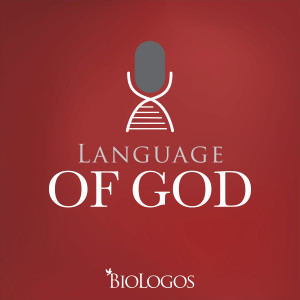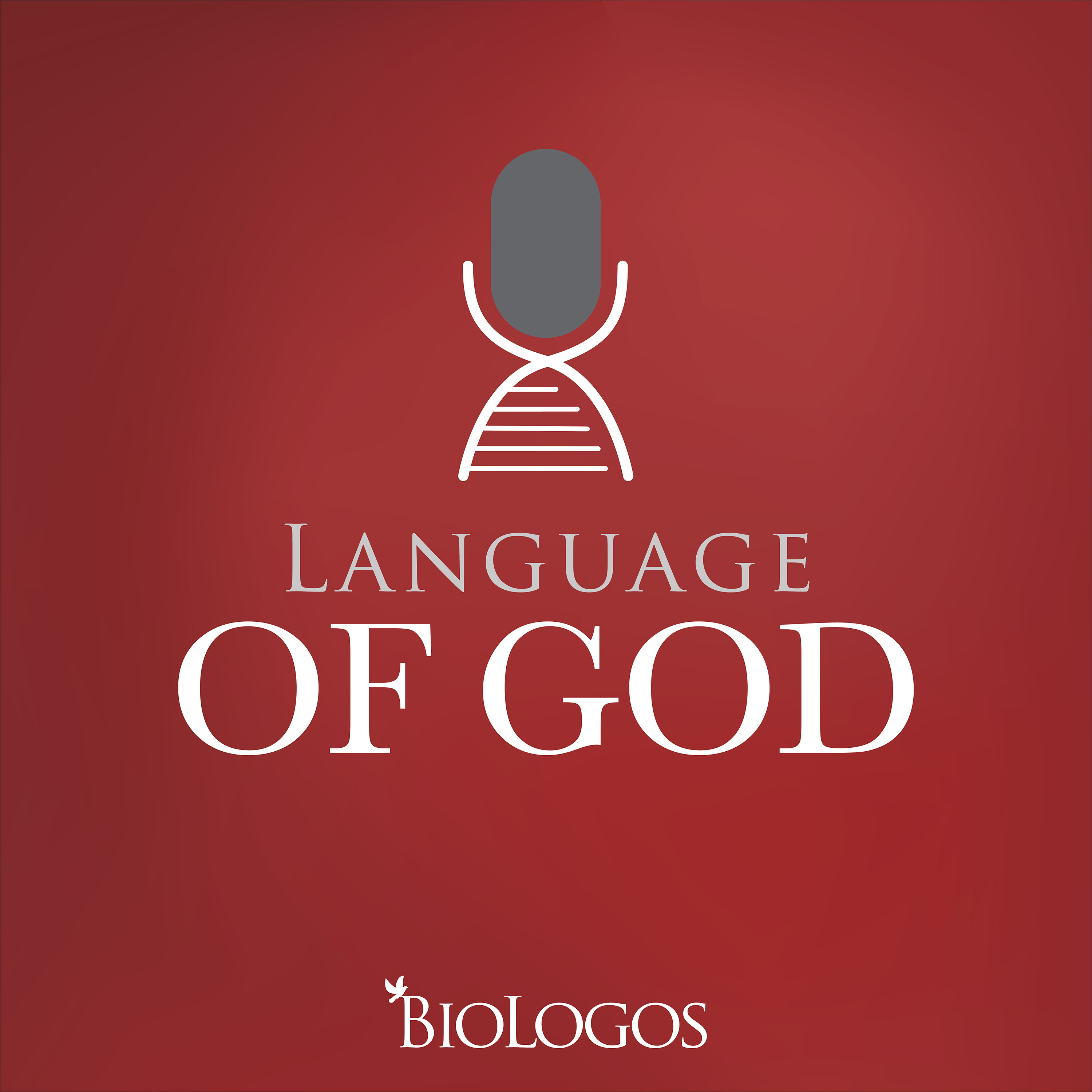Episodes

Thursday Dec 18, 2025
200. Seeking Wholeness in a Fractured World
Thursday Dec 18, 2025
Thursday Dec 18, 2025
A season of reflection led us back into years of past conversations, where unexpected threads began to intertwine. In this episode, we bring those threads into conversation with each other—voices like Makoto Fujimura, Praveen Sethupathy, Krista Tippett, Mike McHargue, and Bill Newsome—to explore how both science and faith gesture toward wholeness in a world marked by fracture. Themes of mending, spiritual hunger, rest, and stubborn hope surface anew as these earlier moments speak to one another in ways we couldn’t have anticipated at the time. What emerges is less a retrospective and more a fresh way of seeing: an invitation to notice the cracks, name them honestly, and discern the gold that might do the work of mending.
Clips from this episode are from:
Makoto Fujimura, Episode 110, 2022
Praveen Sethupathy, Episode 120, 2022
Krista Tippett, Episode 15, 2019
Mike McHargue, Episode 24, 2019
Bill Newsome, Episode 77, 2021

Thursday Nov 20, 2025
BONUS | Live from COP30
Thursday Nov 20, 2025
Thursday Nov 20, 2025
Jim and Colin report from Belém, Brazil and the halls of COP30.

Thursday Nov 13, 2025
199. Spiritual Yearning in Science
Thursday Nov 13, 2025
Thursday Nov 13, 2025
In a world that has sometimes been called “disenchanted,” we have to ask, does science really strip the world of mystery—or might science actually awaken us to something deeper? Sociologist Brandon Vaidyanathan has been exploring this question through his research on spiritual yearning among scientists, revealing that even in secular contexts, the search for meaning and connection runs deep. We also hear a reflection from physicist and writer Alan Lightman, who tells two stories of transcendent moments from his own life and anthropologist Agustín Fuentes helps trace the roots of transcendence back into our human ancestors. When we listen closely to scientists’ stories, we hear not just the search for knowledge, but an echo of something deeper—a yearning to connect to something science can’t explain.
Theme song and credits music by Breakmaster Cylinder. Other music in this episode by Vesper Tapes, Elizabells, Youth Faire, Magnetize Music, and Glory House, courtesy of Shutterstock, Inc.
Interviews Quotes were taken from Brandon's research were taken from published work and generated to voice AI.
Learn more about Brandon's Research Project Here
Find the conversation between Richard Dawkins and Francis Collins here

Thursday Oct 30, 2025
198. Cool Creatures | Ferns
Thursday Oct 30, 2025
Thursday Oct 30, 2025
You might think of ferns—if you think of them much at all—as the unassuming and understated members of the plant world. What could they teach us about philosophy or theology or wonder? It turns out quite a lot. When we explore that strange world of fern reproduction and learn about the two life phases of ferns it brings up questions about identity and what it means to be an individual. And the exploration itself becomes a practice of wonder and celebration of the diversity of life God creates.
Theme song and credits music by Breakmaster Cylinder. Other music in this episode by Northern Points, Evan MacDonald, Superlegal, Pink Marble, Sarah Chapman, Lost Harmonies, Geoffrey Jerrall, and Klimenko Music, courtesy of Shutterstock, Inc.

Thursday Oct 16, 2025
197. Rebecca Copeland | Wicked Problems and Unoriginal Sin
Thursday Oct 16, 2025
Thursday Oct 16, 2025
Theologian Rebecca Copeland joins Jim Stump to talk about how we think about sin in a world full of wicked problems—complex, interconnected issues like climate change, inequality, and mistrust in science. Our usual theological categories often fall short: sin as personal moral failure doesn’t capture the systemic nature of these problems, and sin as an inherited condition can leave us feeling powerless. Copeland offers another way of understanding sin—what she calls unoriginal sin—that helps us recognize both our complicity in broken systems and our capacity for repentance and healing. The conversation moves from deep theology to practical questions about how we live responsibly and hopefully in a tangled, imperfect world.
Theme song and credits music by Breakmaster Cylinder. Other music in this episode by Nick Petrov, courtesy of Shutterstock, Inc.
Check out Rebecca's Book, Entangled Being, here.

Thursday Oct 02, 2025
108. Debra Rienstra | The Discipline of Hope
Thursday Oct 02, 2025
Thursday Oct 02, 2025
Our best scientific models make it clear that society needs a big change at a global scale in order to limit irreversible damage—what good can individual actions and attitudes do in the face of this immense problem? Today’s guest, Debra Rienstra, argues that the right relationship with the Earth can actually make all the difference and that new worlds of hope are built in hidden refuges amidst the surrounding devastation. Genuine lament and grief help reorient us toward the beauty and majesty of creation. Only once this groundwork has been laid can we truly repent for what we have done—and begin the work of hope for a better future.
Additional Resources:
Learn more about Debra's book, Refugia Faith
Sign up for the Refugia newsletter
Find new episodes of Refugia Podcast
Theme song and credits music by Breakmaster Cylinder. Other music in this episode by Pink Marble courtesy of Shutterstock, Inc.
This episode originally aired on Mar 10, 2022.

Thursday Sep 18, 2025
196. Cool Creatures | Ticks
Thursday Sep 18, 2025
Thursday Sep 18, 2025
Ticks are among the most detested creatures in all of nature—but what happens when we look closer? In this Cool Creatures episode, Colin follows Calvin University professor Will Miller and some of his students into the field as they study ticks and the diseases they carry. As we explore ticks we find ourselves asking questions about public health, parasitism, and theology. Are ticks only dangerous pests or can they also open our eyes to the complexity and beauty of creation?
Helpful Resources:
CDC Tick Bite Guidance
Mayo Clinic Guide to Ticks and Diseases
Theme song and credits music by Breakmaster Cylinder. Other music in this episode by Evan MacDonald, Pavel Yudin, Nathan King, Cosmo Lawson, Vesper Tapes, Ricky Bombino & Elizabells, courtesy of Shutterstock, Inc.

Thursday Sep 04, 2025
195. Rob Dunn & Aminah Bradford | The Spirituality of Paying Attention
Thursday Sep 04, 2025
Thursday Sep 04, 2025
What happens when a theologian and an evolutionary biologist walk into a lab together—one asking questions about God through the strange world of microbes, the other studying the tiny ecosystems in our armpits and sourdough starters? In this episode, we hear the answer through the story of Aminah Al-Attas Bradford, a theologian who found herself researching yeast in the ecology lab of Rob Dunn, a biologist known for uncovering the microbial life all around us. Their collaboration leads to surprising questions about dust, microbes, matter, and meaning, and shows what can happen when science and theology meet in the middle in curious, unshielded conversation.
Theme song and credits music by Breakmaster Cylinder. Other music in this episode by Babel, courtesy of Shutterstock, Inc.
Check out Rob's book The Call of the Honeyguide: What Science Tells us About How To Live Well with the Rest of Life

Thursday Aug 28, 2025
194. Sy Garte | Life’s Deeper Logic
Thursday Aug 28, 2025
Thursday Aug 28, 2025
Far from the old picture of life as a mindless, mechanical process, new research is showing that even the simplest organisms—like bacteria—exhibit signs of purpose, agency, and decision-making. Biologist and author Sy Garte returns to Language of God to talk about how this might be a pointer to God. Following from his new book, Beyond Evolution: How New Discoveries in the Science of Life Point to God, Sy invites us into a fascinating and accessible look at how recent developments in biology are shifting our understanding of evolution. Without overstating or oversimplifying, he explores how the science of life opens space for wonder, meaning, and even theological reflection.
Theme song and credits music by Breakmaster Cylinder. Other music in this episode by Diverse Music courtesy of Shutterstock, Inc.

Thursday Aug 14, 2025
193. Science is Good | Wisdom, Stewardship, & Mercy in Three Stories
Thursday Aug 14, 2025
Thursday Aug 14, 2025
Born out of a cultural moment of growing distrust in science, BioLogos’ Science is Good initiative explores how Christians can be a voice for the goodness of science. The episode connects the three parables of Matthew 25—about wisdom, stewardship, and mercy—with the work of three scientists whose careers exemplify these virtues.
Epidemiologist Emily Smith shares how data-driven health work among the global poor reveals a form of wisdom that prepares for the needs of the most vulnerable. Se Kim, a science policy expert, reflects on the gift of scientific aptitude and the importance of investing in people and communities often left out of the scientific enterprise. And Francis Collins tells the story of hepatitis C, a curable disease still claiming lives, and how mercy means doing whatever it takes to bring healing to the “least of these.” Throughout, pastor Jason Miller offers insight into how Jesus’ parables can still form our character—even in our attitudes toward science.
Together, their stories serve as a faithful answer to the call: Science is good—and we are invited to live in the light of that truth.
Theme song and credits m usic by Breakmaster Cylinder. Other music in this episode by Robert Meunier courtesy of Shutterstock, Inc.

